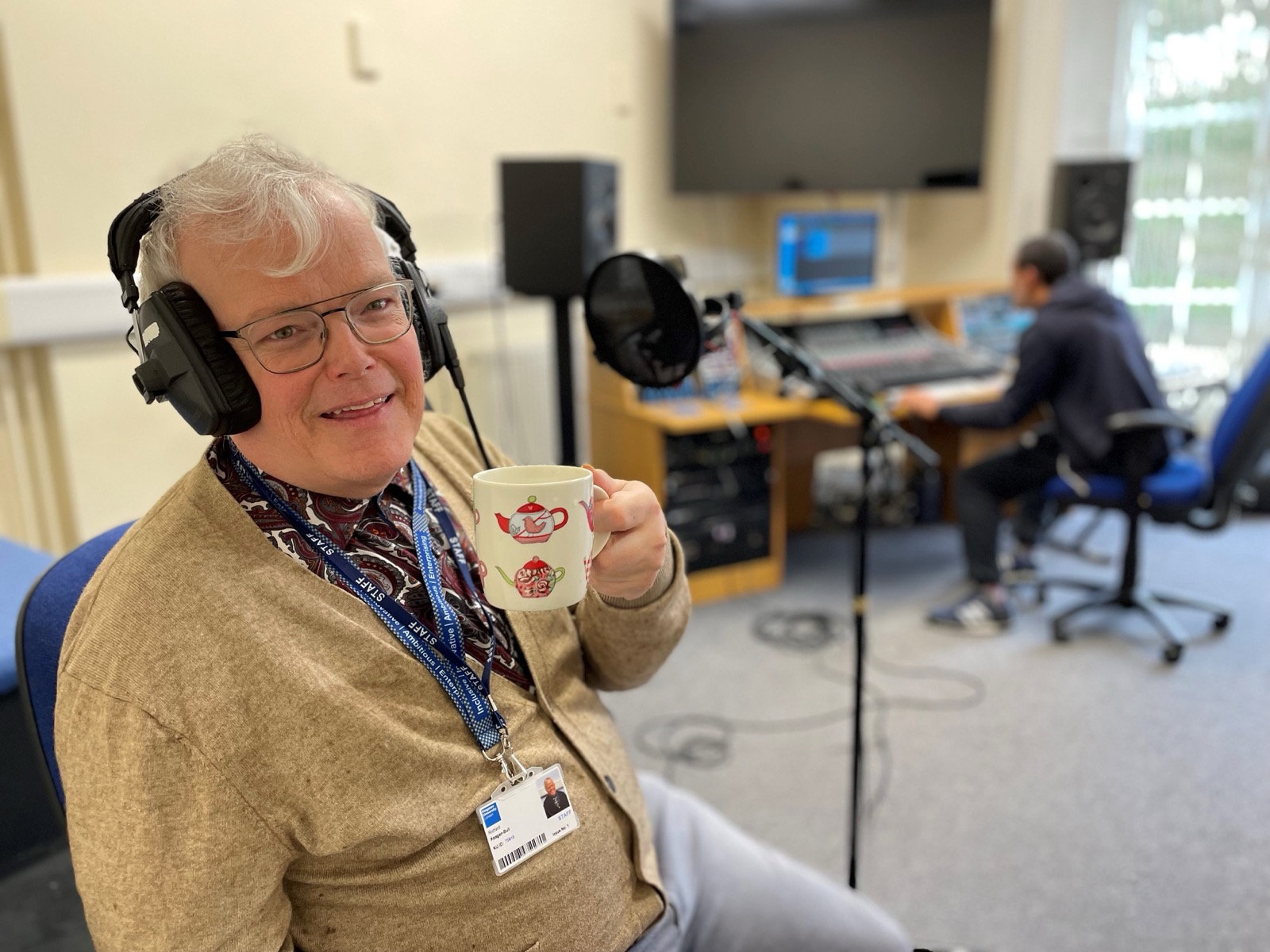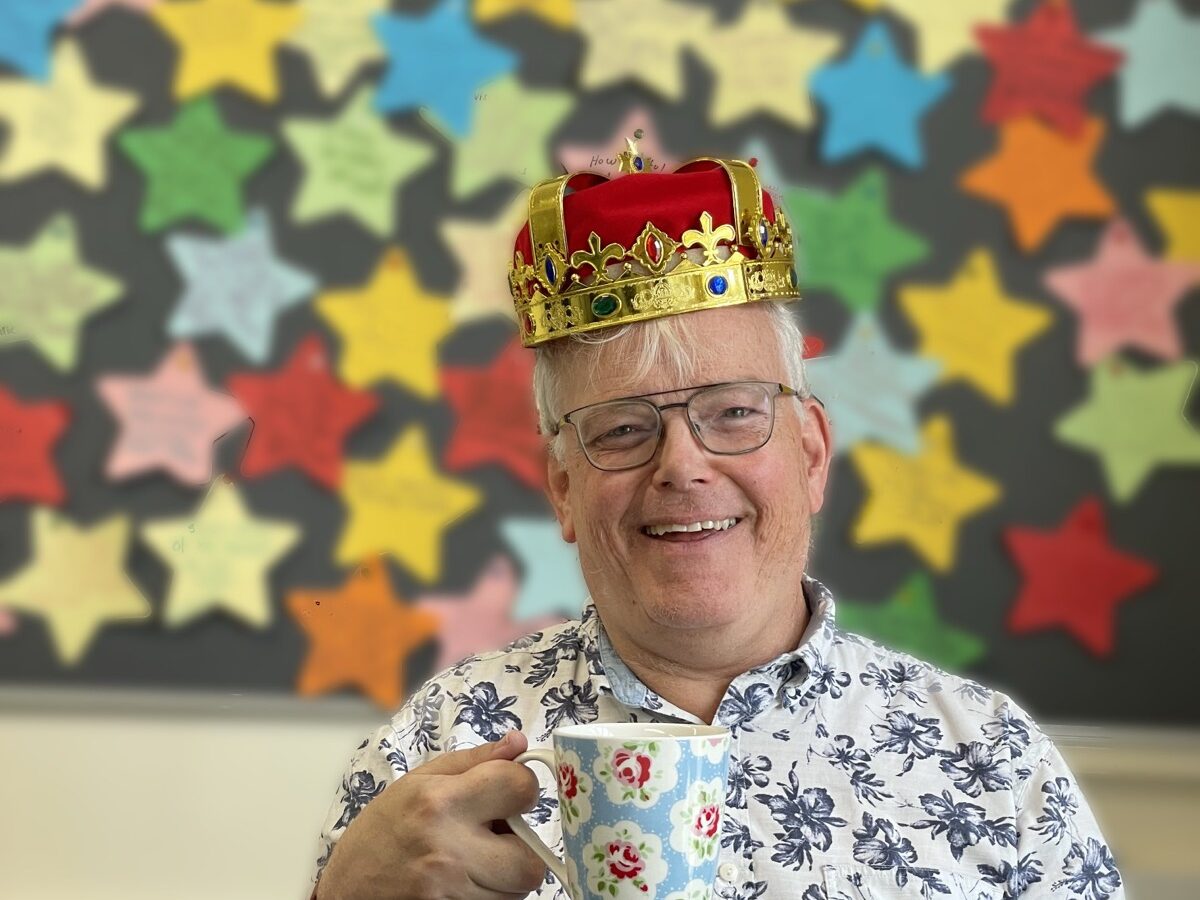When researcher Richard Keagan-Bull told colleagues at Kingston University, “I like talking to people”, little did he know that this casual comment would spark a successful podcast series.
Cuppa Tea with Richard was launched this year and is billed as “a man with a learning disability talking about things that matter”.
Hosted by Kingston University, the show promises “an honest, warm and inspiring conversation over a cup of tea”, and the dozen episodes so far deliver just that.
Recent guests include retired palliative care doctor Kathryn Mannix, NHS psychologist and bereaved sibling Emily Handley-Cole and activist, author and social care professor Sara Ryan.
Mannix recently told the show’s producers: “More podcasts need tea and Richard’s level of interesting questions.”
Presenter Keagan-Bull is supported by producer Irene Tuffrey-Wijne, a professor of intellectual disability and palliative care at Kingston. The editors are university colleagues Jonny Ding and Anastasiya Stravolemova.
Keagan-Bull, who also sits on the Community Living editorial advisory board, said that he enjoyed talking to people during a lunch break chat about an upcoming conference. The event featured people with learning disabilities as hosts and interviewers, and Tuffrey-Wijne commented that Keagan-Bull would make a good interviewer.
About a month after that initial conversation, the team recorded a short teaser and released the first episode back in May. That initial show has gained more than 250 listens on SoundCloud.
Keagan-Bull says: “I like to listen to people’s stories. We thought a podcast was a way to reach out, for more people to understand a little bit more about learning disability.
Tuffrey-Wijne adds: “Richard wants to talk about things that interest him, which is living with learning disability, as well as growing older and living well. So the podcast is about that and about being part of society.”

Beyond set questions
Keagan-Bull’s skill, she says, is his “ability to have a set of questions, but then also to ask on, to deviate from it”.
“He really listens to the answers and picks up on some things that people say,” she notes. “That is such an interviewer skill.”
To support Keagan-Bull and to avoid any worries or potential trolling (from, for example, people demanding to be on the podcast), the team drafted some ground rules.
These include Ding and Tuffrey-Wijne taking responsibility for deciding on and approaching guests. Keagan-Bull also suggests people to interview and agrees or disagrees with his colleagues’ choices.
The team researches each guest and draft questions together, with the podcast created at the university’s recording studio.
Keagan-Bull says: “We do our homework on it – you don’t just dive in.”
The team has some tips on starting a podcast.
First, says Tuffrey-Wijne, editing is vital – a 40-minute conversation will be cut to 10 minutes: “That’s quite hard. Which content do you leave out?” Creating five or 10 minutes of really good audio will take days from inception to research to recording to editing.
Next, it is worth judging whether you have the right people and support to sustain an entire series.
Then, you need to consider how often you broadcast your show and whether you record episodes one at a time or in batches for release over, for example, a six-month period (the latter is the strategy for Cuppa Tea with Richard).
It is essential to create a “quality product”, says Tuffrey-Wijne.
As Keagan-Bull adds: “We want professional podcasters out there shaking in their boots – we want to be number one, so what we do has to be professional.”
Cuppa Tea with Richard is available on podcast platforms and via cuppateawithrichard.wordpress.com





